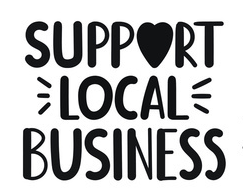Staging Your Home Inexpensively

If you’ve made the decision to put your home on the market, your Realtor® has probably told you that staging plays an important part in the sales process. You have a little painting you’d like to do, as well as do some work in the kitchen, but a full house staging just isn’t in your budget. Don’t be intimidated by the thought of having to fork out a lot of money to make your house looks perfect--there are inexpensive ways to stage your house, and here are just a few:
-
Discount department stores are full of inexpensive home decor: faux plants, decorative pillows, framed art and mirrors.
-
Sheer window panels cost less than half the cost of new curtains, allowing natural light to shine through, which is a huge plus, as a dark house isn’t on very many house hunters’ lists.
-
After cleaning carpets or even refinishing hardwood floors, an area rug or runner to brighten and protect them may be necessary.
-
The bathrooms can be given a fresh look with new shower curtains and a set of fluffy white linens in each room.
-
Big box stores are the source for inexpensive cabinetry hardware, light fixtures, as well as faucets that you may choose to replace.
-
A vase of fresh flowers brightens any room! Discount bouquets or even single blossoms can be purchased in department store produce sections or flower markets and can last a week or more if cared for properly.
-
If you’re planning on placing a bowl of fruit on the kitchen counter, purchase oranges or apples instead of lemons. They can be eaten by the family, which saves money, as they won’t be tossed out!
-
On the outside, inexpensive mulch can transform the flowerbeds. Pots with annuals planted in them are all you need for a splash of color on the front steps.
If you must use what you have, like many homeowners, ask your agent if they can recommend a stylist that specializes in redecorating with what is available. The cost would be much less than using an interior decorator, not to mention less stress for you.
Courtesy of New Castle County DE Realtors Tucker Robbins and Carol Arnott Robbins.
Photo credit: pinterest














